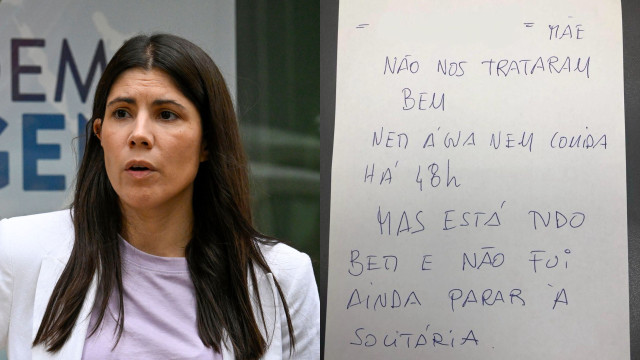
A young woman, now 18, was sentenced in the Judicial Court of Leiria in November 2024 for the crimes of qualified homicide (12 years in prison) and desecration of a corpse (nine months in prison). The cumulative legal sentence resulted in a single prison term of 12 years and three months, benefiting from a special regime for young offenders.
The Public Prosecutor’s Office (MP) appealed, arguing that the young woman should not benefit from the special youth regime, which would affect both the individual and total sentences, and, failing that, the sentences imposed were incorrect and should be increased.
“(…) Contrary to the decision of the first instance, we believe that there are no serious reasons to think that a special reduction in sentence would offer benefits for the reintegration of the defendant into society; therefore, she should not benefit from the special criminal regime for young people,” stated the Supreme Court of Justice (STJ), which agreed with the MP’s appeal.
Regarding the consequences of not applying this regime to the sentences, the STJ noted the “very high illegality of the acts” in the case of the homicide and medium illegality in the desecration of the corpse, “similarly considering the intensity of intent” in both crimes.
However, it acknowledged that “the youth of the defendant and the adverse conditions she grew up in, with consequences on psychological, intellectual, emotional, ethical, and emotional levels, should be given strong mitigating value,” applying a sentence of 14 and a half years in prison for the crime of qualified homicide, and a sentence of one year in prison for the crime of desecration of a corpse.
“After considering all factors, we consider the single sentence of 14 years and nine months of imprisonment necessary, appropriate, proportional, and fully justified by the degree of blameworthiness of the defendant,” the court stated.
The case dates back to August 2023, when the defendant was 16 years old, a high school student, living with her father and 19-year-old sister in Peniche, according to facts established by the Leiria Court.
The father had an alcohol dependency, and the defendant’s sister suffered from dwarfism, with the family relying on the father’s pension.
The older sister “assumed a supervisory role” over the younger one.
On the afternoon of August 15, an argument broke out between the two sisters in the living room over the defendant losing her mobile phone.
During the argument, the defendant armed herself with a knife and delivered 30 deep stab wounds to her sister, who died as a result. She then dragged the body to her room, hiding it under the bed for three days.
“After these three days, the defendant wrapped her sister’s body in a sheet, making a bundle, and transported it to a sandy field at the back of the residence, where she dug a hole with a shovel and buried it,” reads the court ruling.
The Leiria Court dismissed “any cognitive deficit” of the defendant, considering she also does not “suffer from any psychiatric illness,” but presents a “borderline personality organization, exacerbated by the family environment she grew up in, experiencing a set of abusive, negligent, and abandonment dynamics.”
“Due to her emotional dependency, the mobile phone became a means for the defendant to find satisfaction and connection,” supported the first instance, adding that she has difficulties in socialization, “with difficulties in processing her emotions and managing her frustration.”
Ricardo Serrano Vieira expressed understanding and acceptance of “the reasoning detailed in the ruling, which partially contradicts the MP’s position at the time of the appeal and the intention of a sentence exceeding 20 years.”




